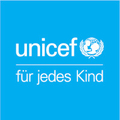Three-quarters of teens and adults ages 14 to 34 recently reported needing emotional or psychological support.
Vienna/Geneva/Kiev (OTS) – Since the war escalated in February 2022, the incessant attacks, which resulted in around 3,500 airstrike warnings in the Zaporizhzhia and Kharkiv regions and nearly 6,200 in the Donetsk region, have had a devastating impact on children’s mental health and their ability to learn effectively.
The winter months were particularly terrible for the children: thousands of them had to seek refuge in cold, damp basements as escalating attacks left many families without heat, water and electricity.
„The war in Ukraine has destroyed childhood and severely affected children’s mental health and ability to learn
” said UNICEF Executive Director Catherine Russell. “The children have experienced two years of violence, isolation, separation from their families, loss of loved ones, displacement and disruption to education and healthcare. This nightmare must end.
“
„The ongoing shelling leaves children in Ukraine little opportunity to recover from the fear and trauma associated with the attacks. Every siren and every explosion unsettles her even more. Education is a pillar of hope, opportunity and stability in children’s lives, but it remains disrupted or out of reach for millions of children in Ukraine.
“
The psychological effects of war on children are widespread. Surveys show that half of 13 to 15-year-olds have sleep problems and one in five suffer from intrusive thoughts and flashbacks – typical signs of post-traumatic stress disorder. Three quarters of children and young people between the ages of 14 and 34 said they had recently needed emotional or psychological support. However, less than a third have sought help.
Parents in Ukraine report increased levels of anxiety, excessive fear, phobias and sadness, as well as lower engagement in school, sensitivity to loud noises and sleep problems in children. At a time when parental support is needed most, half of parents surveyed reported struggling to support their children.
Across the country, 40% of Ukrainian children do not have access to continuous education due to a lack of facilities. In areas closer to the front lines, half of school-age children do not have access to education. Latest data shows that the size of the learning gaps in 2022 compared to 2018 is equivalent to a loss of two years in reading and one year in math.
Since the escalation of war two years ago, UNICEF has expanded its work in Ukraine and is currently present in Kyiv, Lviv, Odesa, Dnipro, Poltava, Mykolaiv and Kharkiv, providing humanitarian assistance and essential support to children and families.
UNICEF’s work in Ukraine focuses on ensuring children have access to medical care, immunizations, nutritional assistance, protection, education, clean water and sanitation, social protection, and mental health and psychosocial support.
In refugee-hosting countries, UNICEF works with governments, communities and local partners to strengthen national systems that provide high-quality education, health and protection services to refugee and marginalized children from host communities.
„Humanitarian principles, international humanitarian law and international human rights must be respected. Children need a chance to recover, and the best way to do that is to end this war
“, so Russell.
UNICEF Austria continues to ask for support Emergency aid in Ukraine.
You can find photo and video material from Ukraine here.
Questions & Contact:
Michael Blauensteiner
presse@unicef.at
+43 660 38 48 821
